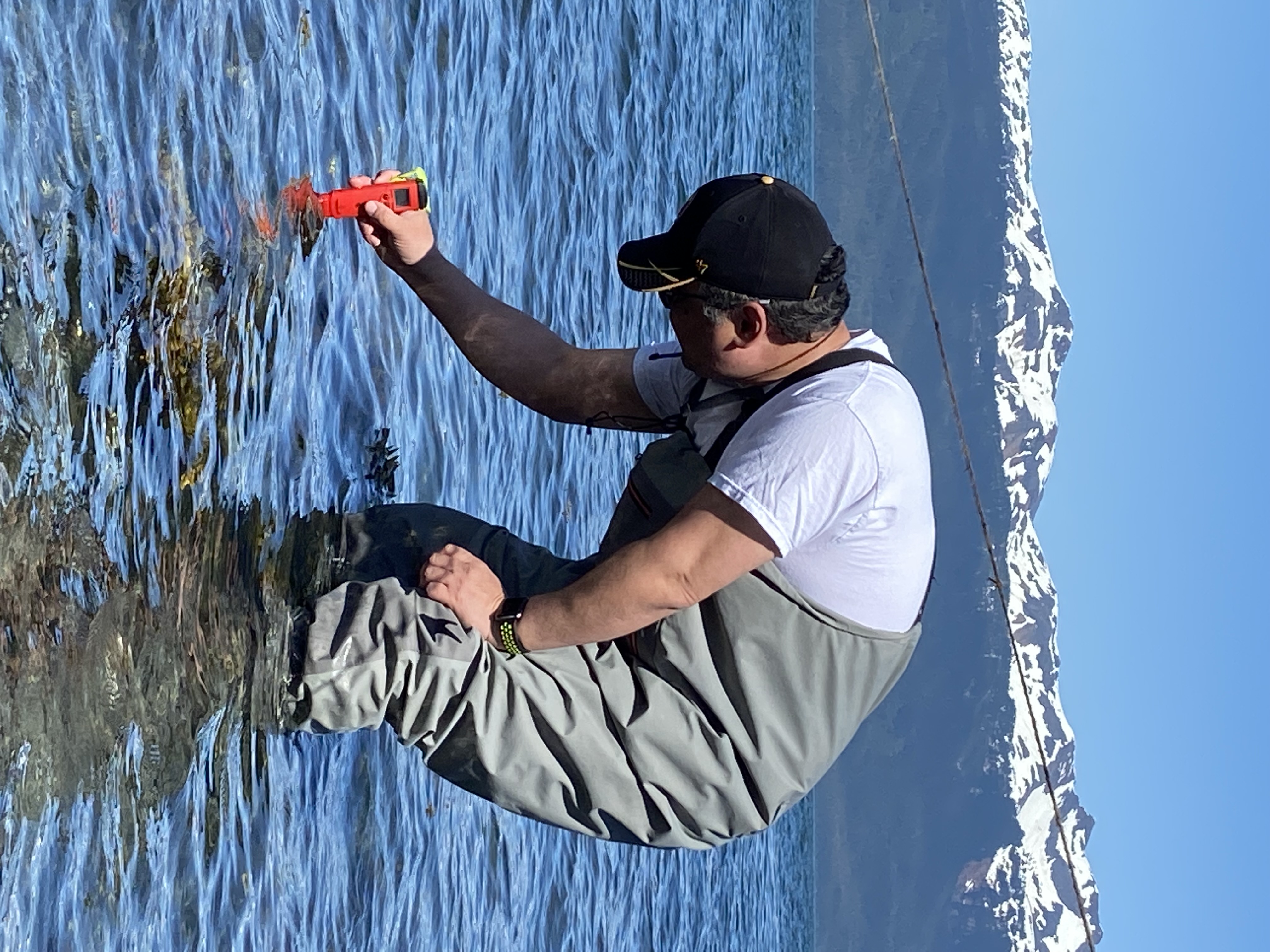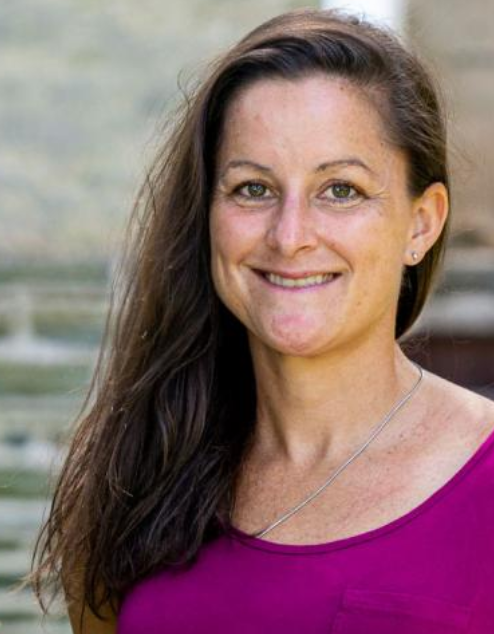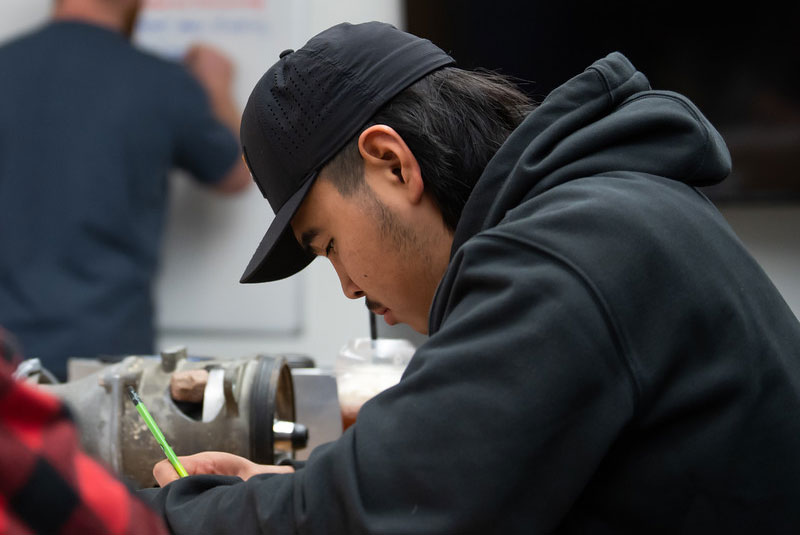Marine Ecology and Mariculture for Teachers
Marine Ecology and Mariculture For Teachers
...connecting the classroom with the natural resources of Alaska.
- Based in Seward, Alaska
- Intended for teachers of science who are not science teachers by training
- Explore the interconnected relationships of the marine ecosystems as well as an introduction to the Alaskan mariculture industry
- Develop place-based, culturally-responsive knowledge, awareness, and practical skills
Place based activities may include:
- Exploration of the Alaska Sea Life Center
- Kayaking in Resurrection Bay
- Hike in a temperate rainforest
- Marine ecology of Resurrection Bay
Dates, Location, and Contact
Dates: May 25-31, 2025 (*2 required Zoom sessions prior to the onsite course. Times/Dates TBD. Approximately 2 hours each.)
Credits: 3 + 1 *Grant funding requires students to enroll in the summer course and a 1-credit fall curriculum implementation course that will be delivered remotely. Students must receive a C or better in both courses or they will be responsible for tuition expenses.
Seats Available: 10
Location: Seward
Contact: Katie Bobowski, 907-822-3673 or uaa_pwscforteachers@alaska.edu
Instructor: Amanda Glazier
Course full! Registration is now closed.
Participants are Saying...
“An incredible learning experience. The field activities, and also learning from my colleagues, will allow me to create many placed-based and traditional knowledge lessons for my students. The rural schools have little-to-nothing in the way of science materials, and these courses opened my eyes to a broad array of possibilities. I’ve gained many takeaways for use in my classroom. I’m excited.”
Solomon Afcan, Nunam Iqua School

- What to expect
Marine Ecology for Teachers is primarily a field based course and we will be spending most days outside exploring different learning possibilities. Students should be able to walk at least 5 miles. Portions of the course may be carried out over uneven terrain, often without a trail, and may include river crossings or other hazards depending on route and travel logistics. The course requires being able to sit in a kayak for several hours (3+ hours) and participate in boat-based activities. The course may require good physical condition and ability to perform in cold and/or inclement weather. Students must be prepared to spend long days outside, with a number of environmental concerns to mitigate, including: bears, mosquitos, wolves, rivers, weather, temperature, etc.
- What will you get
- A week of content-rich days immersed in classroom and field exercises to deepen teaching pedagogy.
- Teachers will walk away with lesson plans, resources, tools how to fit the curriculum into a classroom or virtual learning environment, and examples of place-based lesson planning.
- All students will develop a place-based lesson plan or unit to use in their own classroom. All of the lesson plans developed will be put into an online database that will be made available to all students for adaptation and use in their classroom.
- Why should you come
- Gives teachers the ability to reconnect to and re-energize their passion for teaching.
- Mixes classroom activities with place-based/outdoor activities, which asks the teachers to not only consider their curriculum, but to also their classroom environment
- Collaborative workshop activities allow STEM teachers to meet and network with other educators who are living through the same experience
- Important Grant Information
- Grant funding will only pay for grades C or higher in the program. Failing grades (F), D's, withdrawals (W), and incompletes (I) will not be covered by the grant and students will be responsible for the cost of tuition.
Meet The Instructor
Dr. Amanda Glazier

Amanda came to PWSC from Haverford College outside of Philadelphia. There she was a Visiting Assistant Professor, teaching Marine Ecology, Population Genetics, Advanced Genetic Analyses, and Superlab. Prior to that she was a Research Assistant Professor and Postdoctoral Fellow at Temple University in Philadelphia. Her research has focused on population genetics, phylogenetics, and transcriptomics of deep-sea invertebrates, and she is broadly interested in using genetic tools to address evolutionary and ecological questions. Her research has spanned lab work, field work with five deep-sea research cruises, and bioinformatics and computational work. While all of these are important aspects of research and learning, in teaching, she deeply believes that experiential and field-based techniques are the best way for students to learn and develop a passion for environmental sciences and ecology. Her courses are developed as much in this context as possible, getting students outside and physically working with the topics instead of just sitting in a classroom. This may include part of the day in the field and part in the lab or working with an online database to experience different aspects of the subject. She is very excited to be in Alaska, developing courses in this context in such a unique, incredible environment.
Peer Mentor: Dr. Patti Self
Program Coordinator: Teshina Dorsey
Partners
This work is supported by the USDA National Insitute of Food and Agriculture










